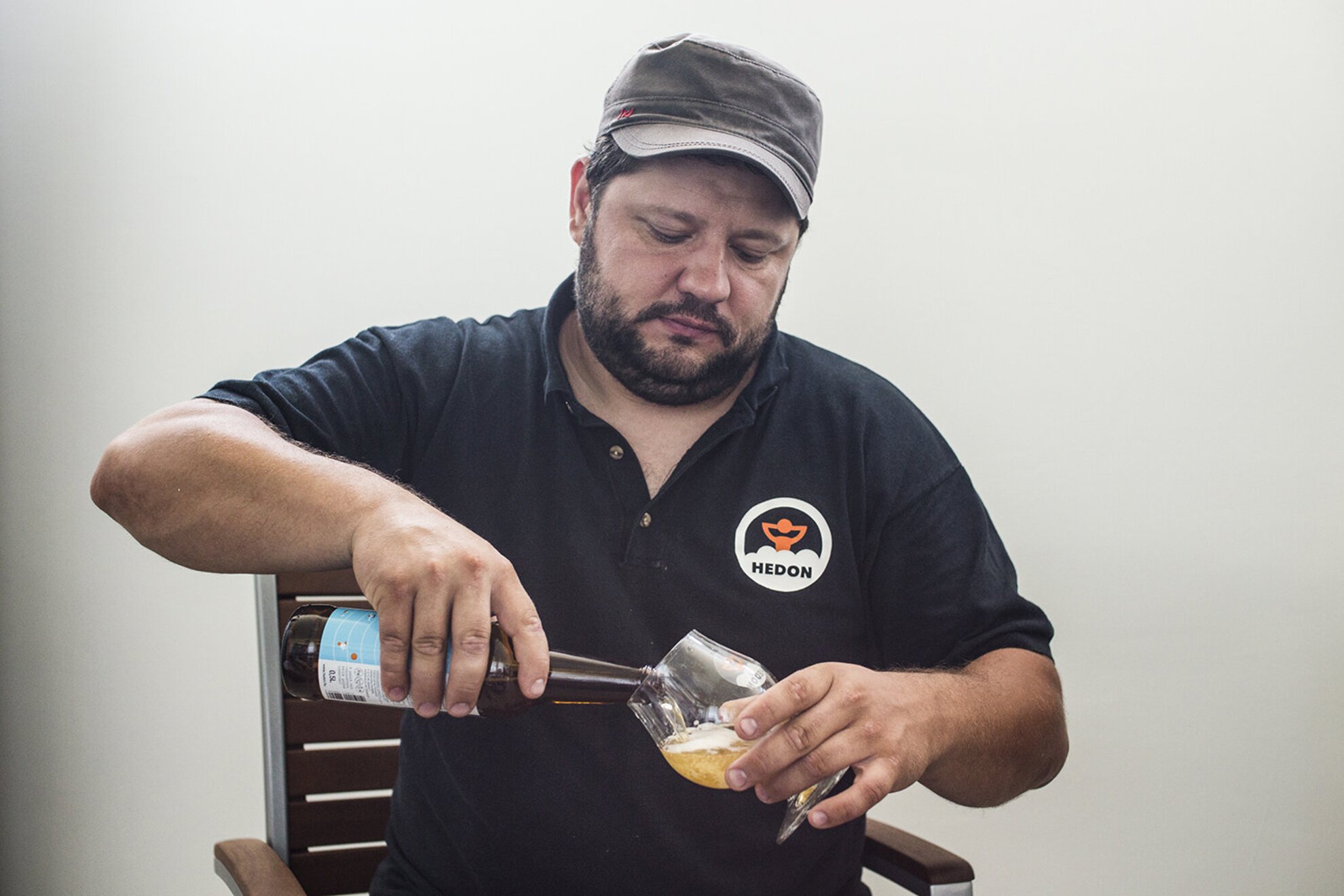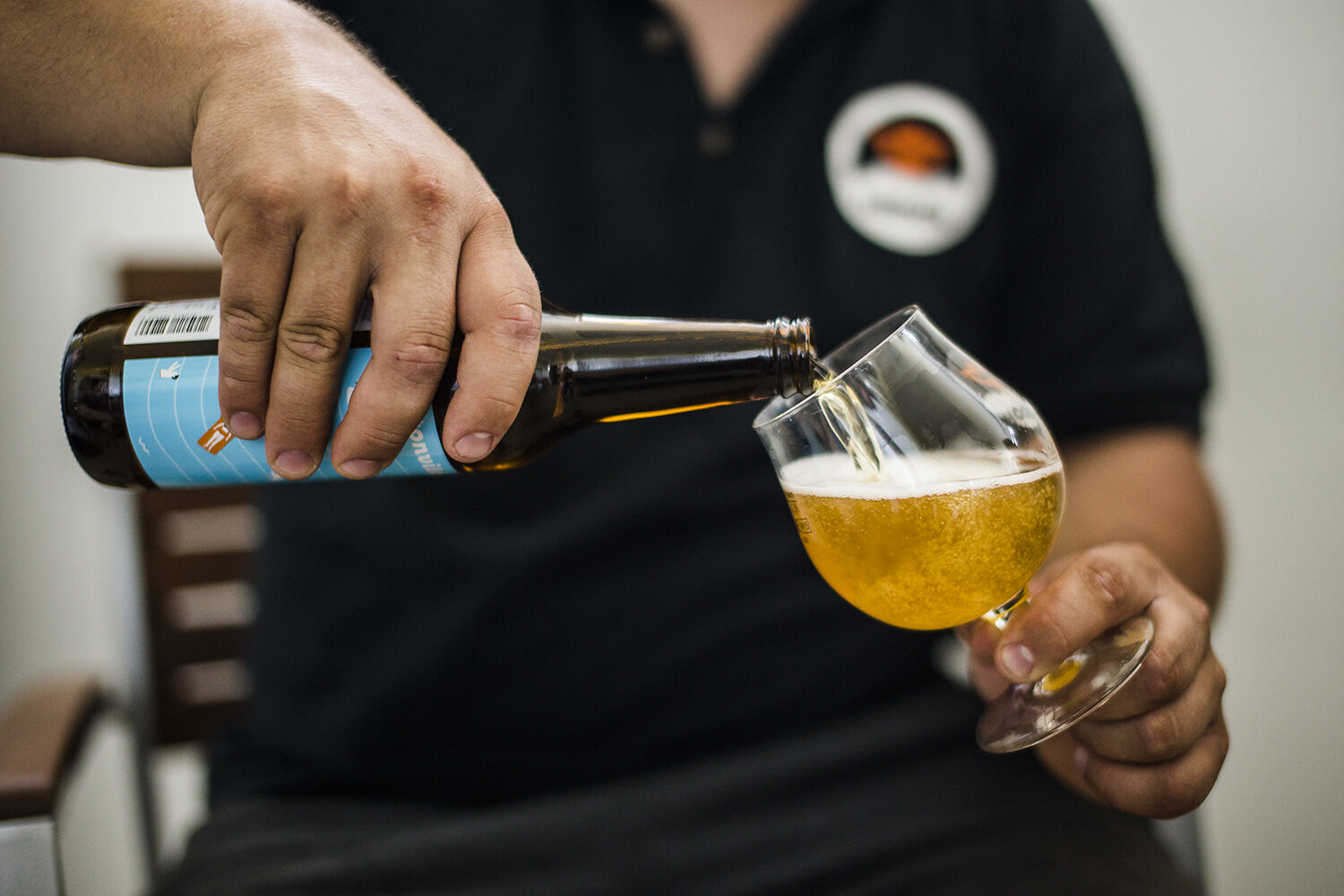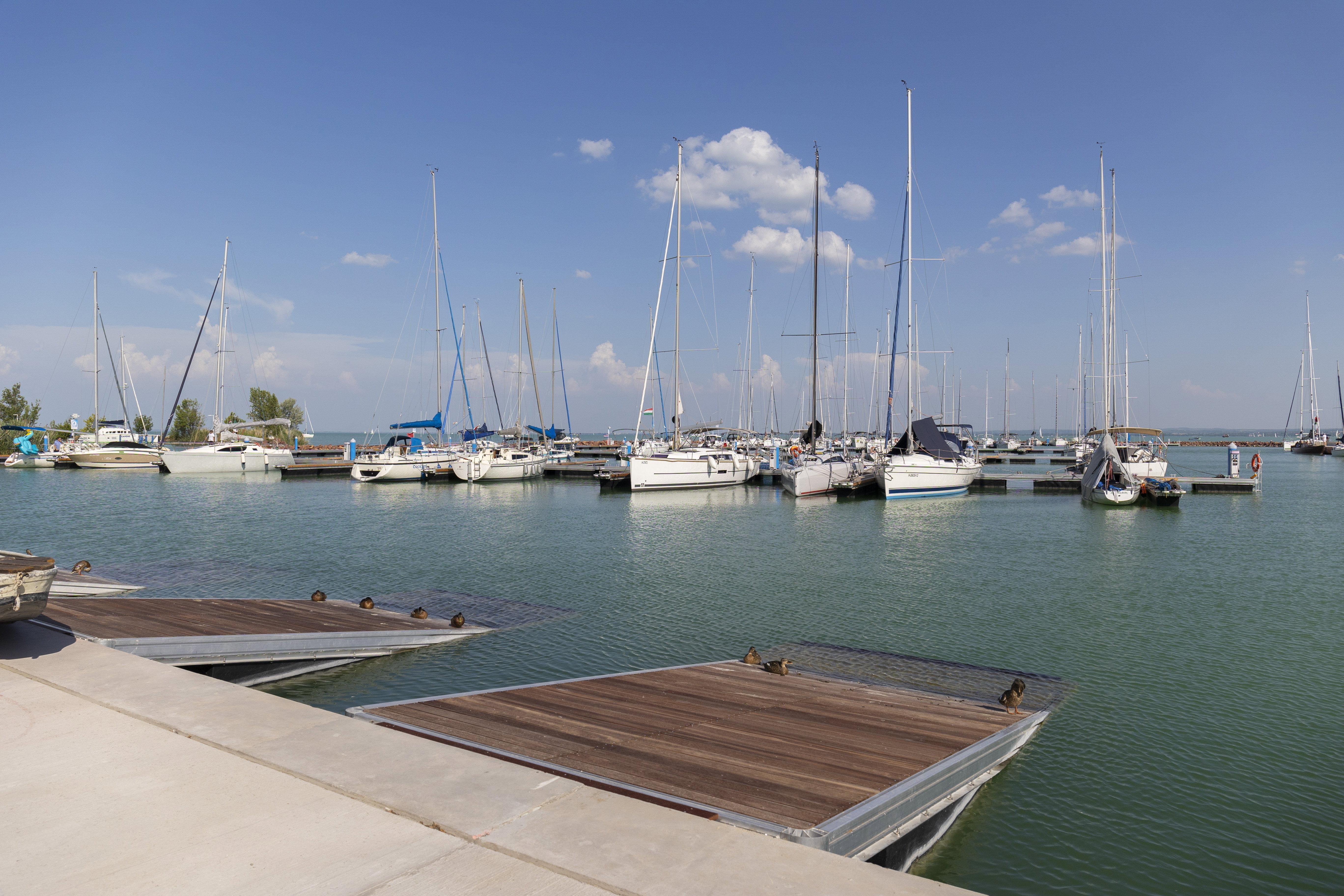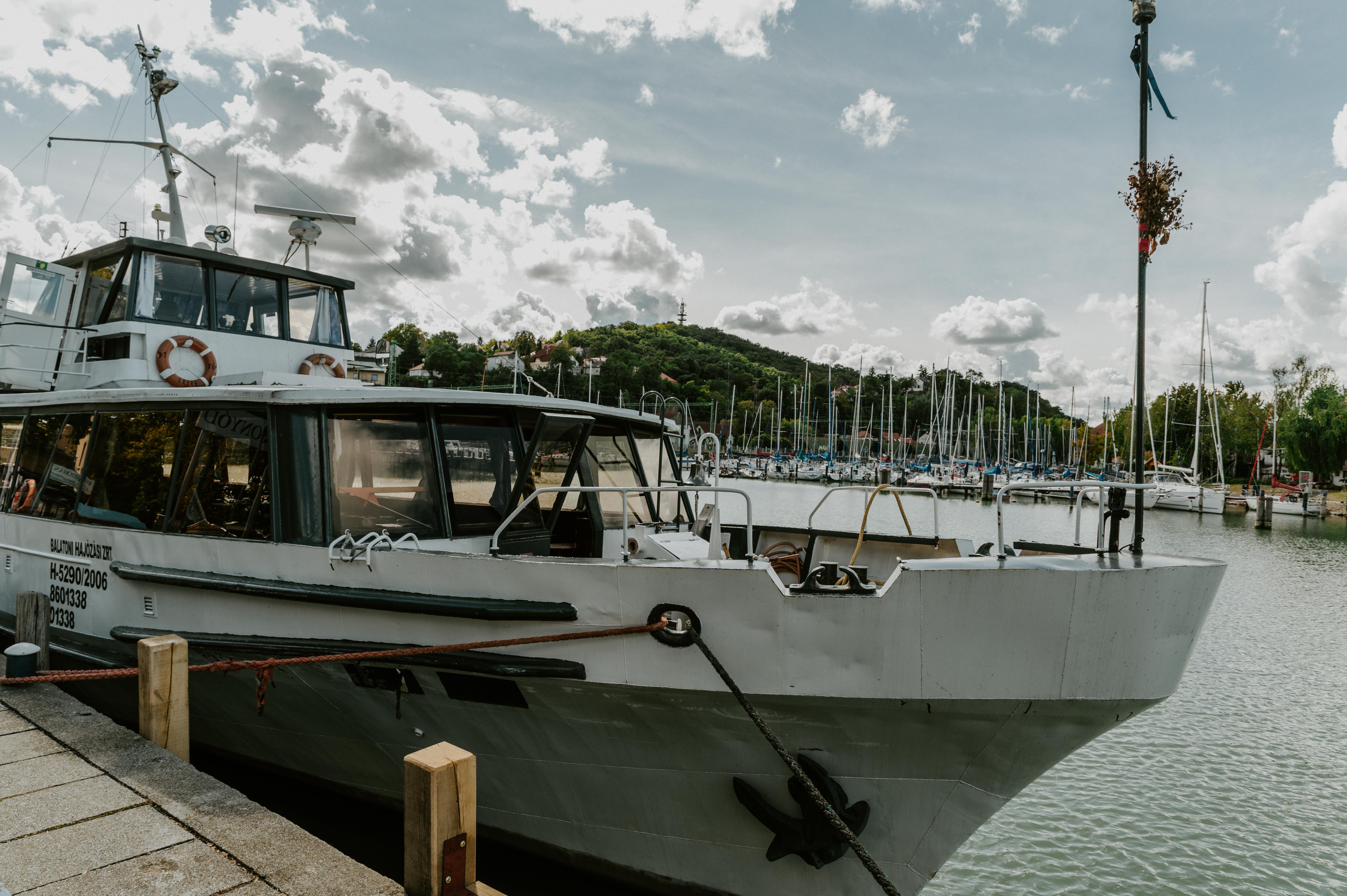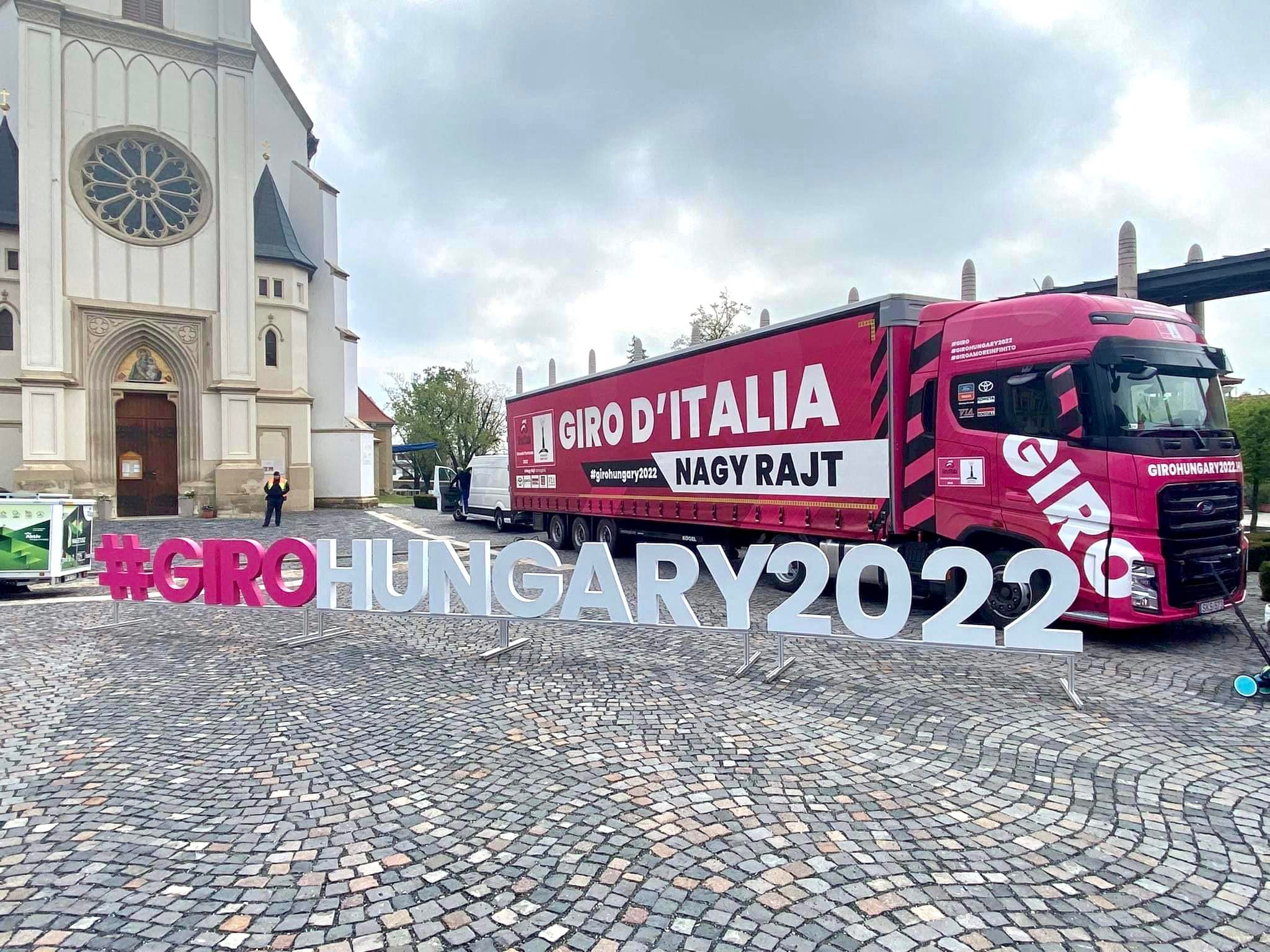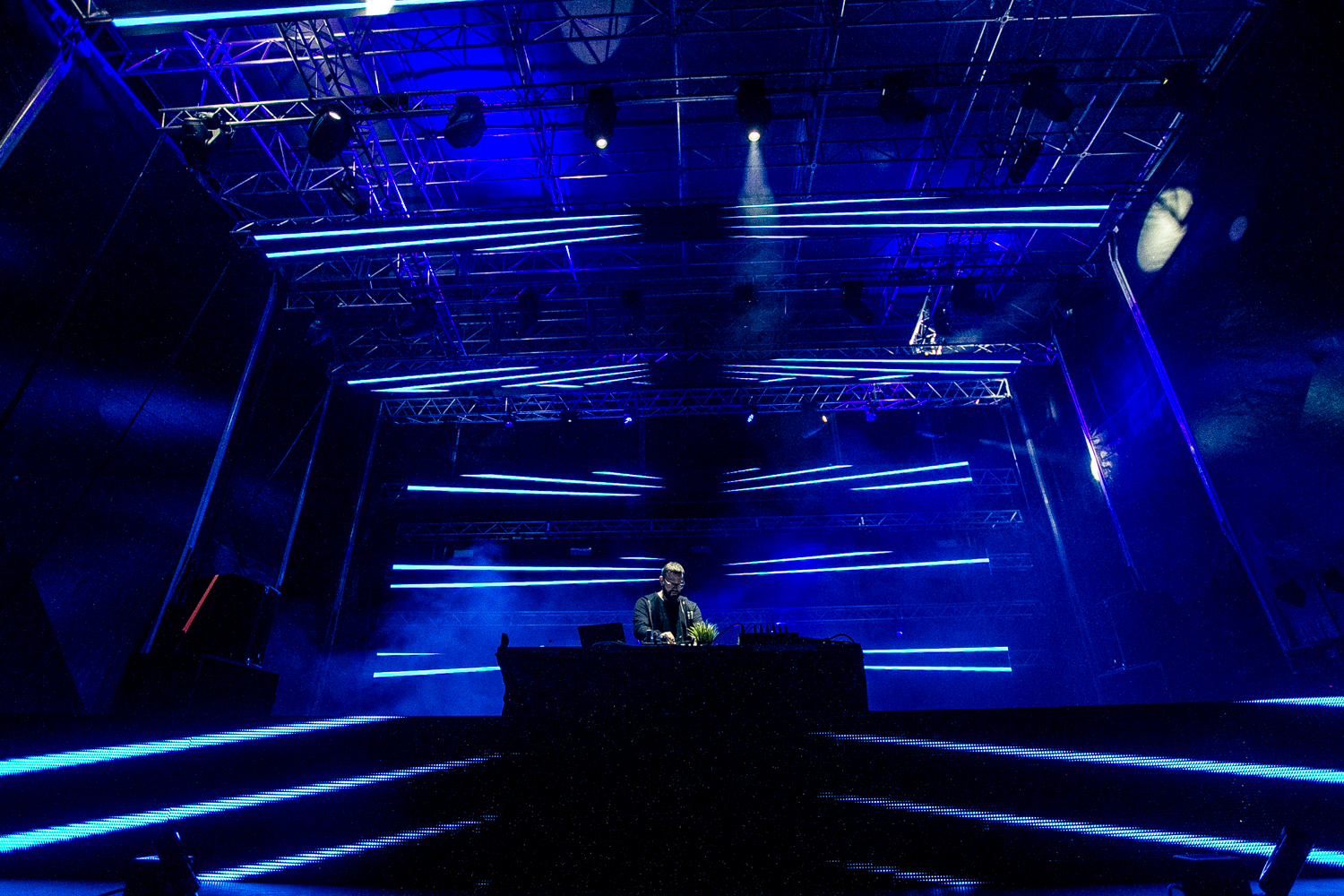We stopped by the new brewery of Hedon in Balatonvilágos to see how they make their amazing beers, and to check out the strangely located upstairs apartments over the production line.
We were on our way to Balatonvilágos to visit the brand new craft brewery of Hedon because we really wanted to see for ourselves what the second microbrewery of the region – the first being the one in Tapolca – looked like when we came across a washed-out man on the edge of the village. The sturdily built guy had a can of Steffl in his hand, which seemed kind of odd, but we thought it must be some kind of gag, so we went over, introduced ourselves, and asked if he was the person we were looking for. “No, I’m just looking for the beach. Do you know where it is? I hope I’ll find my way back to the truck stop though…” he said with a smile.
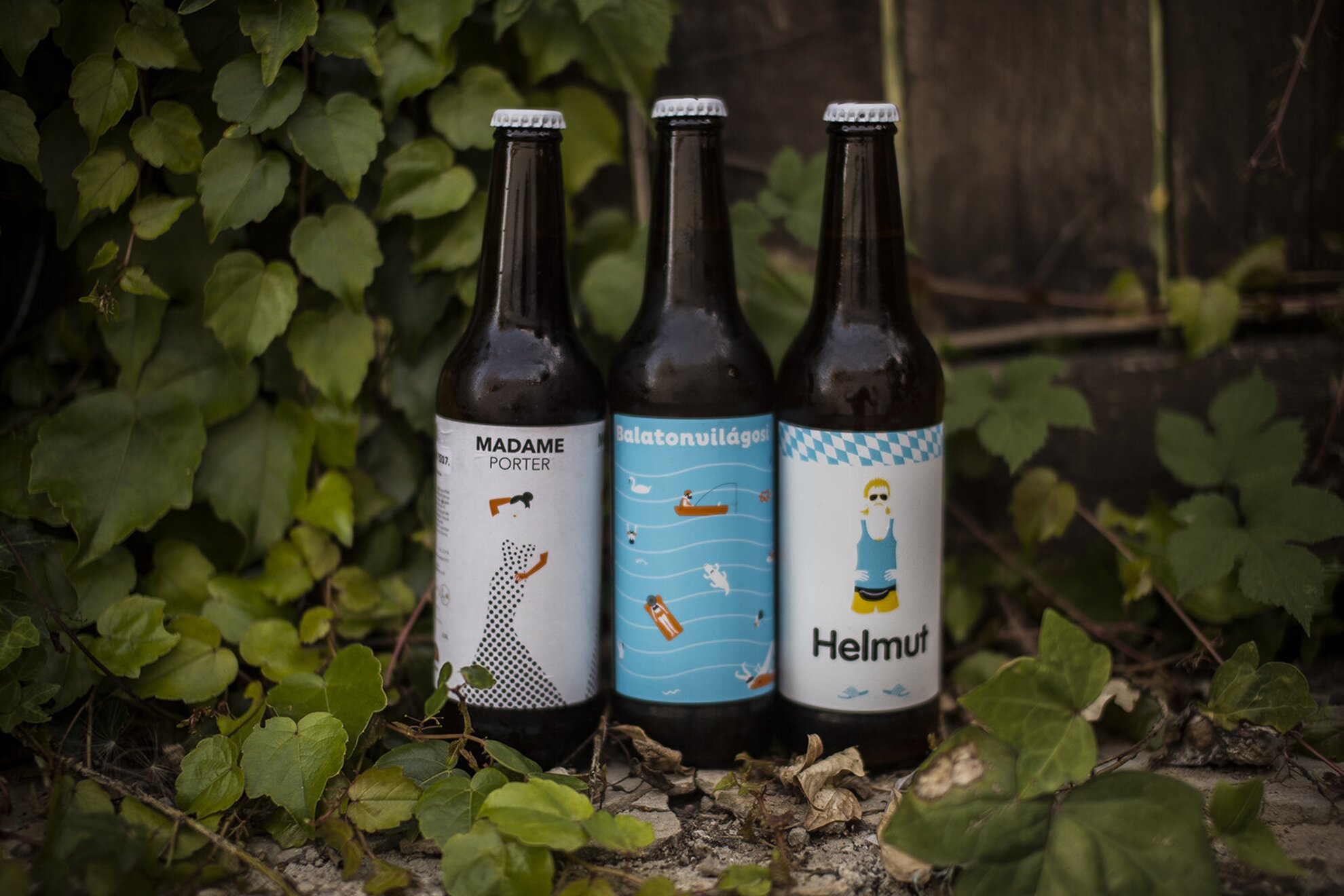
So he wasn’t our guy, of course, only a truck driver stopping at one of the rest areas by motorway M7, but judging by the imaginative labels of Hedon, we wouldn’t have been surprised if this funny little scene had been their idea. We first heard about Hedon, known for its unique design and cool craft beers, at a variety of places around Balaton, and we became more and more curious to find out who came up with the creatively named craft beer creations Helmut, Charlie Firpo, and Balatonvilágosi. Sited on the edge of Balatonvilágos and Siófok, the facility doesn’t only feature a brewery, but also five apartments in what used to be a popular children’s holiday resort. We were shown around by brewmaster Antal Németh, who told us all about the brand and the building as well as his own past and future.
Life in the orange and white house
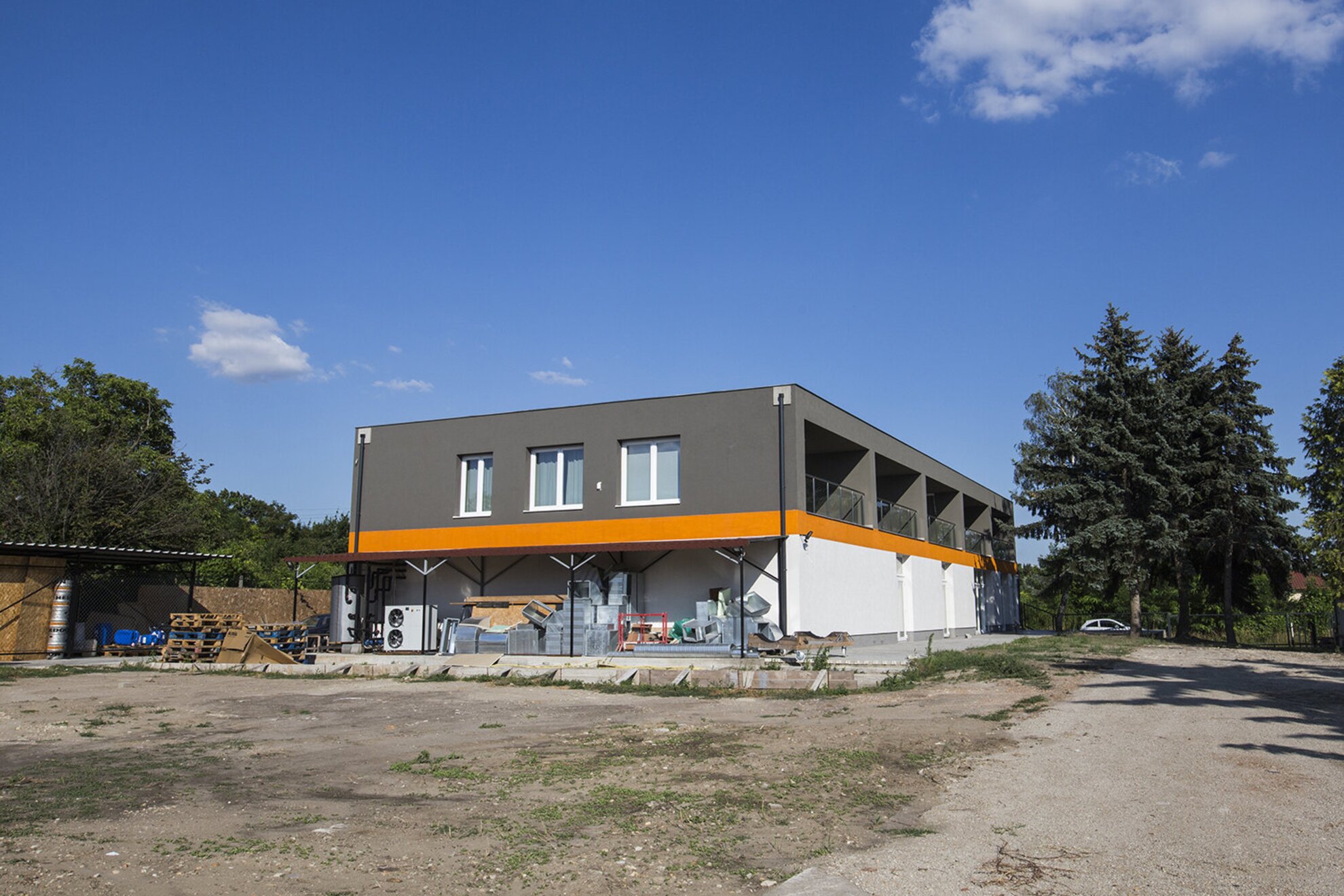
The five apartments on the first floor all bear the names of Hedon beers, such as Charlie Firpo, Vertigo, and Balatonvilágosi; all of them have their own kitchen, a balcony, and a bathroom. The rooms are intended for business partners coming to visit and tourists looking to spend the night after a day of beer tasting at the brewery. The upstairs area also houses an office and a laboratory (which isn’t finished yet), a pioneering feature that will set them apart from the other craft breweries in Hungary. “If you don’t have a lab, it’s like you’re flying blind,” Németh explained.
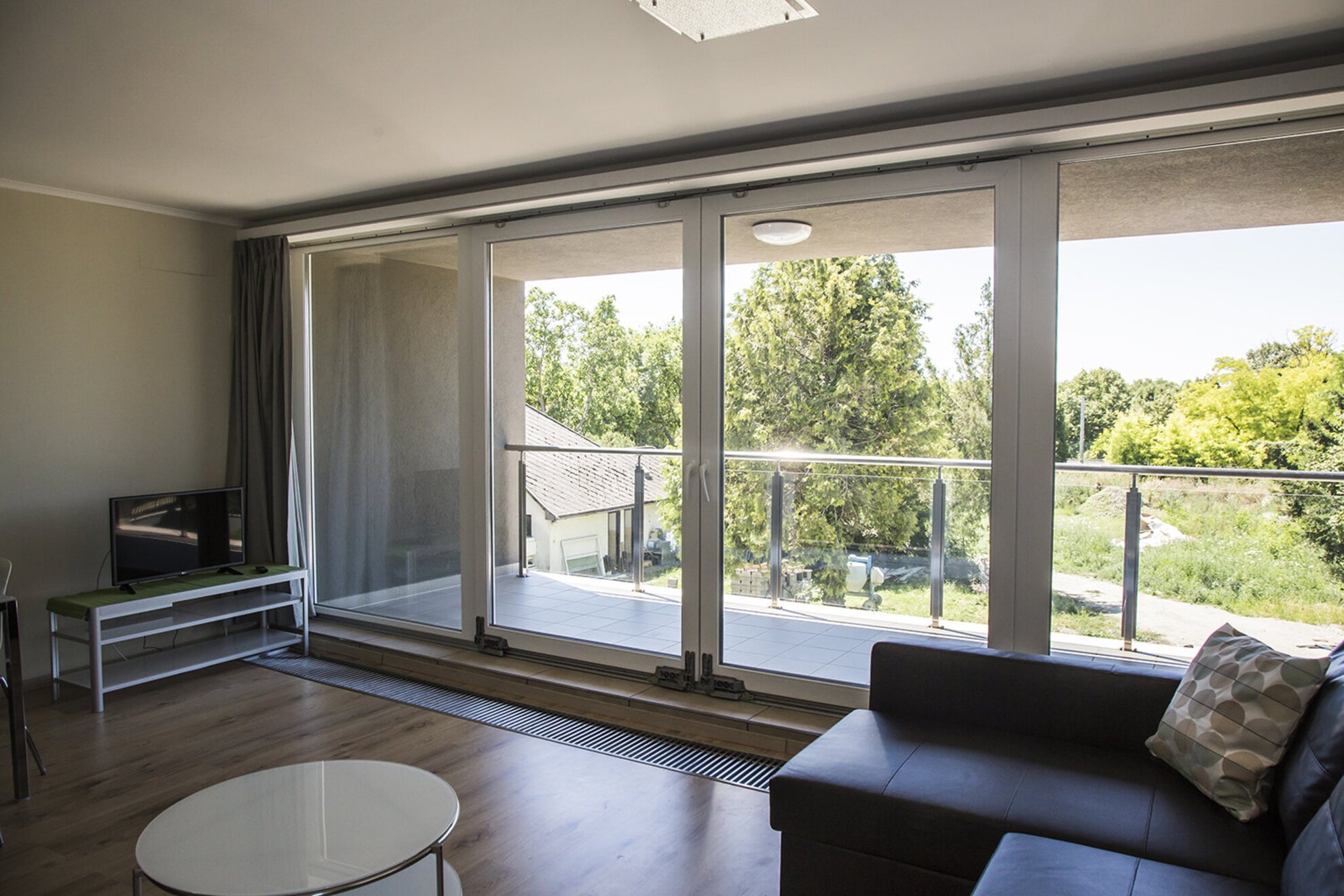
The factory itself is found on the ground floor, and so is the brew-pub, a beer pub and restaurant that is yet to be completed. The opening will most likely take place next year, and the plan is that the dishes will be paired with the brewery’s one-of-a-kind beers. For example, Charlie Firpo will be inevitably served with beans and onions (the beer is named after Bud Spencer’s character in Odds and Evens; Hedon posted a picture on Facebook to mark the famous actor’s passing).
The owner bought two neighboring plots with two small, old houses, one of which is currently used as a storage building for malt. The surrounding area – the future garden if you will – is very much under development, and even the factory is so new that production has only been in full swing since February.
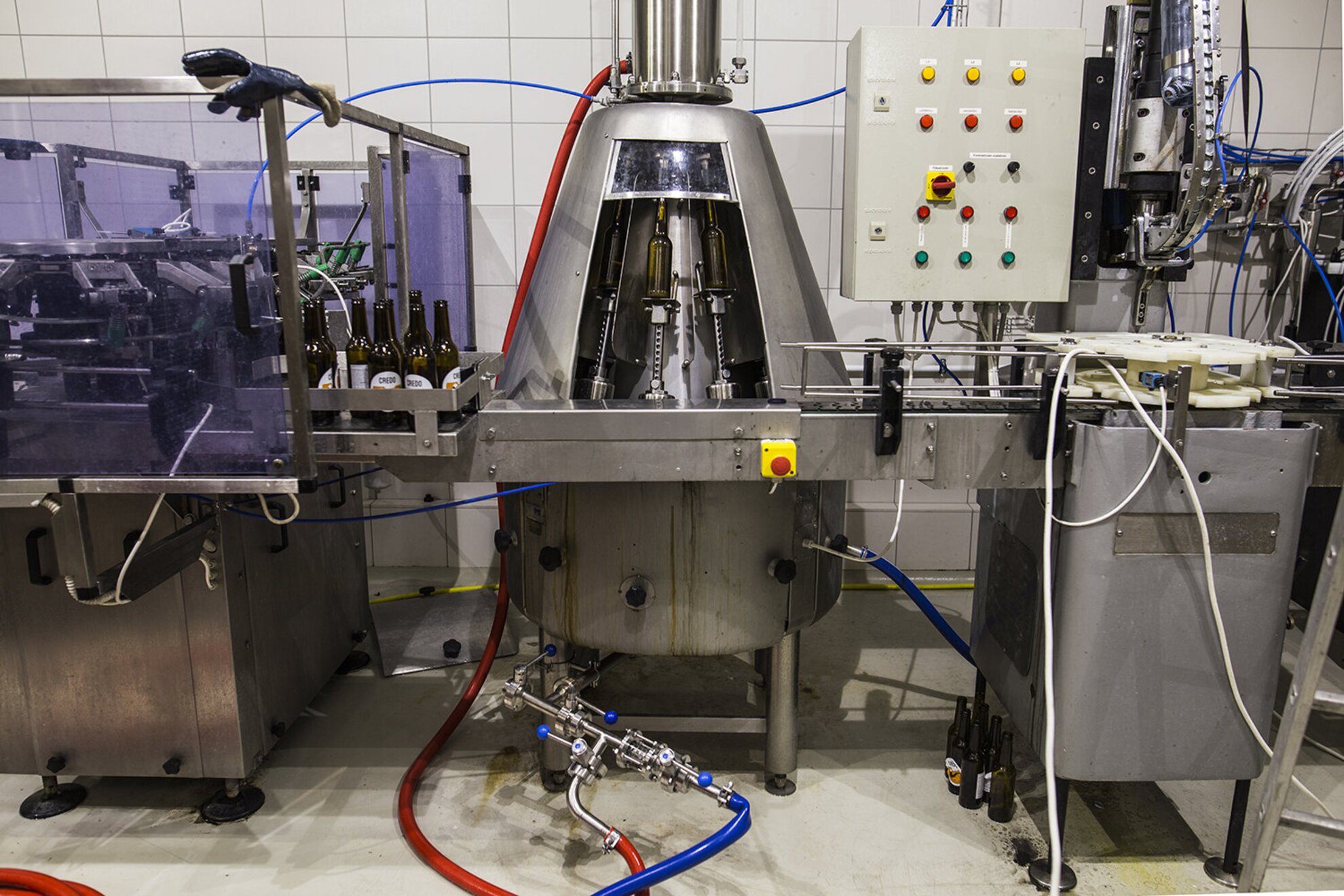
Identified flying objects
The brand’s image has been created by Flying Objects from the creative logo with the little orange man and the pattern on the cap to the bottle labels. “We decided that we were going to be cool,” said Németh with a smile when we asked him why they put so much emphasis on what their products look like. The names of the beers, however, have been invented by the team. How did Németh leave his job in HR and become the founder of a brewery?
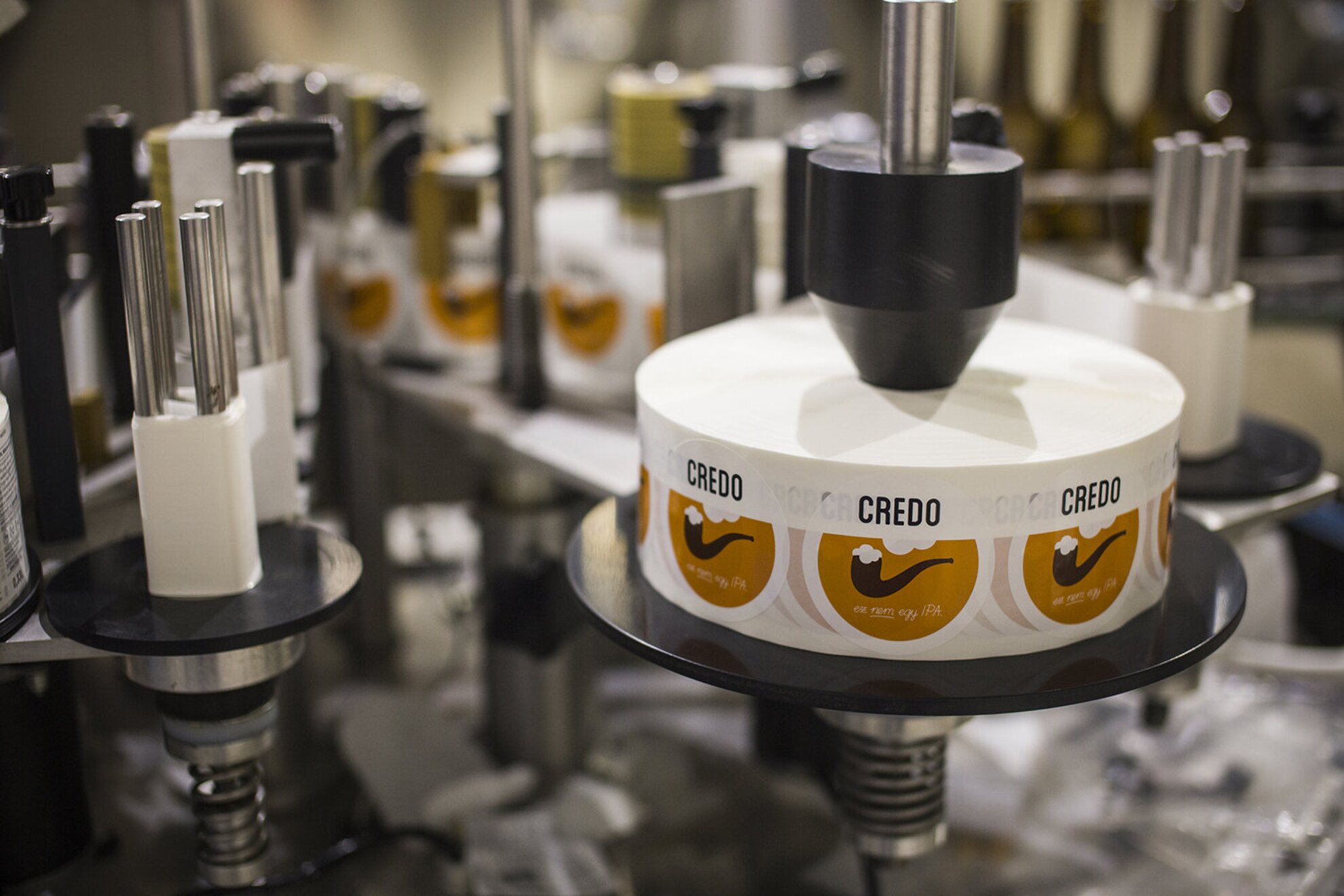
He says he’s a kind of “executive chef”, who doesn’t actually participate in production (there’s a plant manager and a staff of six for that), but sets the main directions and devises the recipes. He used to work in HR, and began making beer at home, but he eventually got fed up, and started brewing full time after he and his wife came to an agreement about him quitting his job. He produced beer for himself for two years, and since his creations were really successful among the people who came to taste, he set up a serious beermaking workshop in Dob Street in Budapest. He needed to move, so he set up shop in Újpalota, and started his own website. He moved once again, this time to the district of Újpest: the brewery turned into a club, expanding its selection with other kinds of alcoholic drinks.
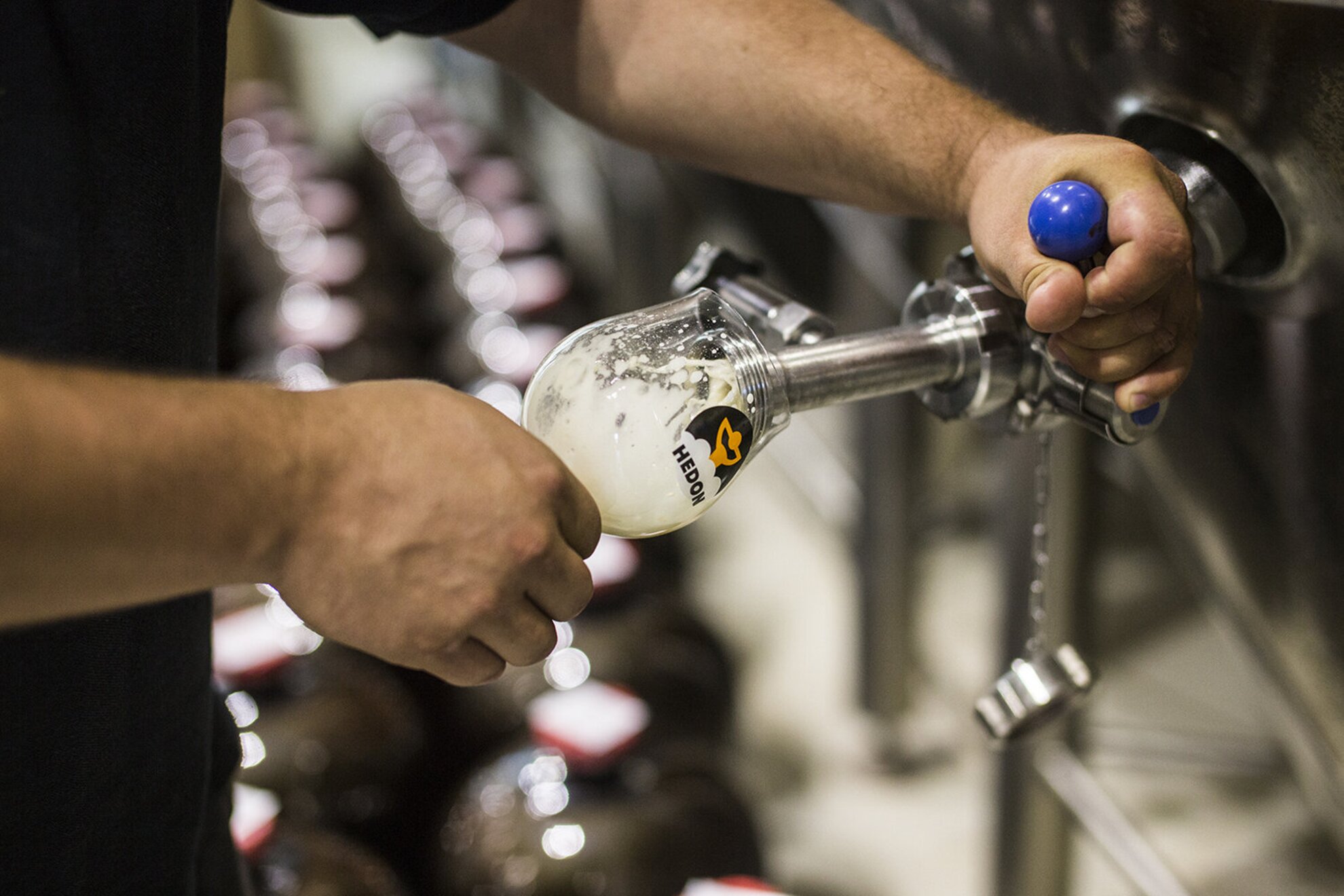
Németh started participating in brewing contests in 2013, surprisingly winning a regional competition in Slovakia despite being a Hungarian citizen. His name became well known, and he began gypsy brewing, that is, making beer for other breweries (in addition to Hedon, he also creates intoxicating concoctions for Monyó, which are a bit more out there and experimental). His chili-flavored beer Napalm earned first place at the annual beer extravaganza called Főzdefeszt, which gave the final push: Németh teamed up with two of his friends to establish the Hedon brand.
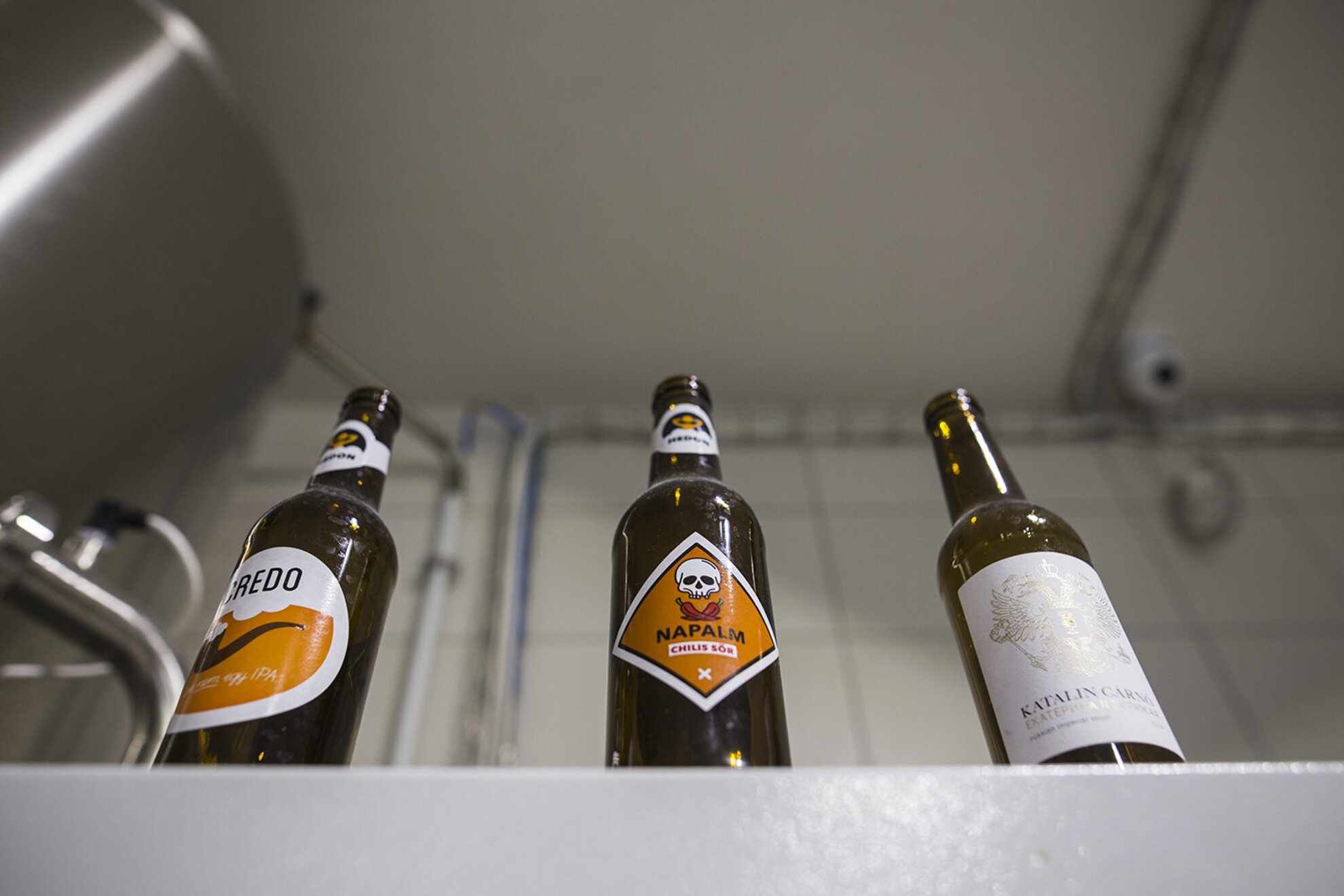
Production report
Németh took us on a tour of the brewery, and told us all about himself and the process of making beer; we had thought it was a lot easier than it turned out to be. The first room is for preparation: this is where they store the high-quality malt procured from all over Europe (that’s why a bottle of their ale costs about 1,000 forints), and there’s a fridge where they keep the hops and the yeast. During this first stage, the malt is mixed with water, and this is also when the key step of draining takes place in a machine the team designed together with the manufacturer.
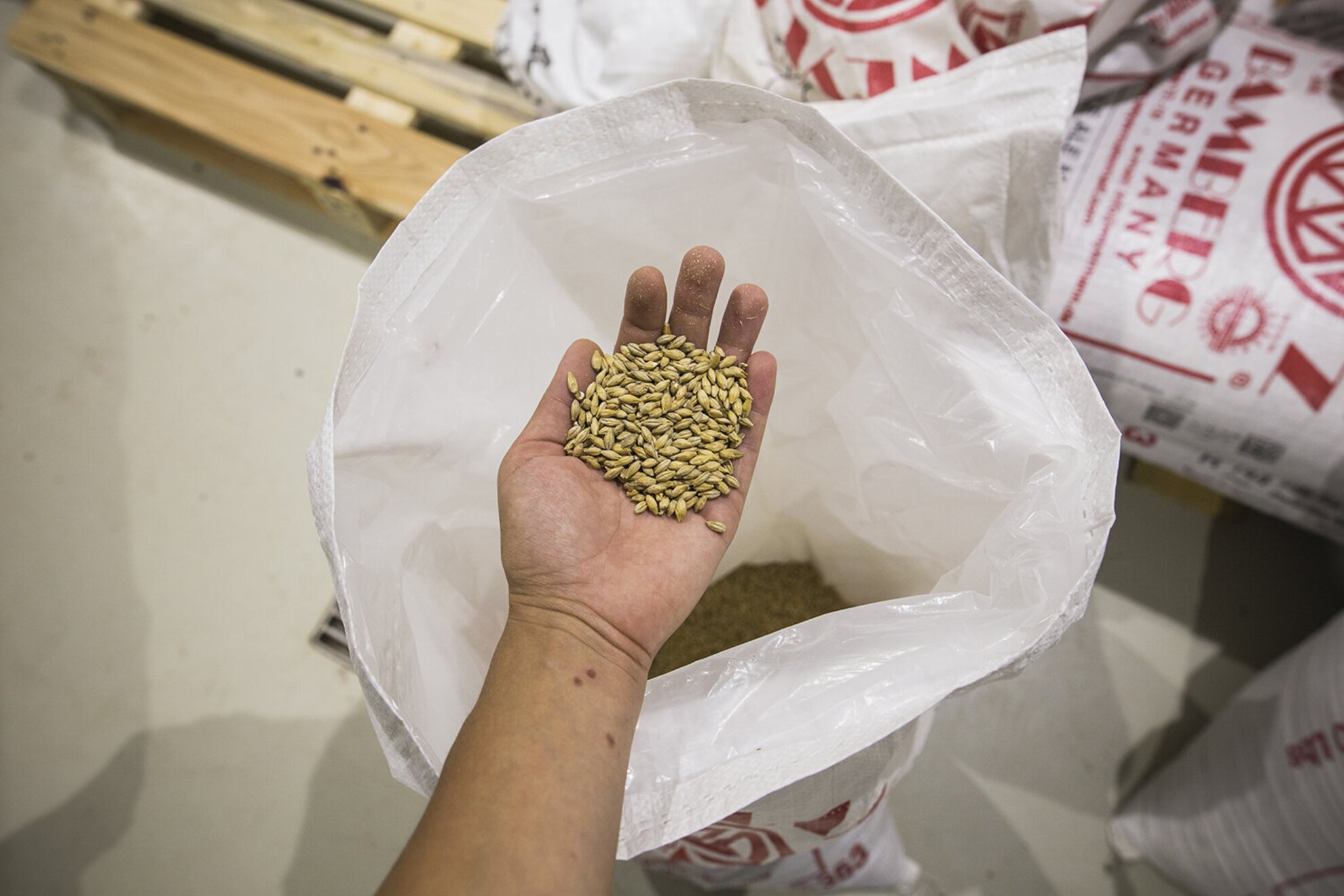
Next, it’s the brewing stage where the drained liquid goes through a three-step process: first, the saccharification of the malt takes place, then comes lautering, and finally the boiling of the hops. The process lasts about three hours, and is carried out with the addition of water heated to 80 degrees with the help of a boiler. The beer is then cooled and the hot water generated during the cooling process is channeled back into the boiler.
At this stage, everything is transferred into the fermentation tanks, which cost 12,000 euros, and are certified by TÜV (they guarantee that the tanks have no material defect, which can be important in the event of an occupational accident). Németh showed us several other machines, such as the yeast filtration device and the CIP, which cleans the machines of the production line with water, alkali, and acid.
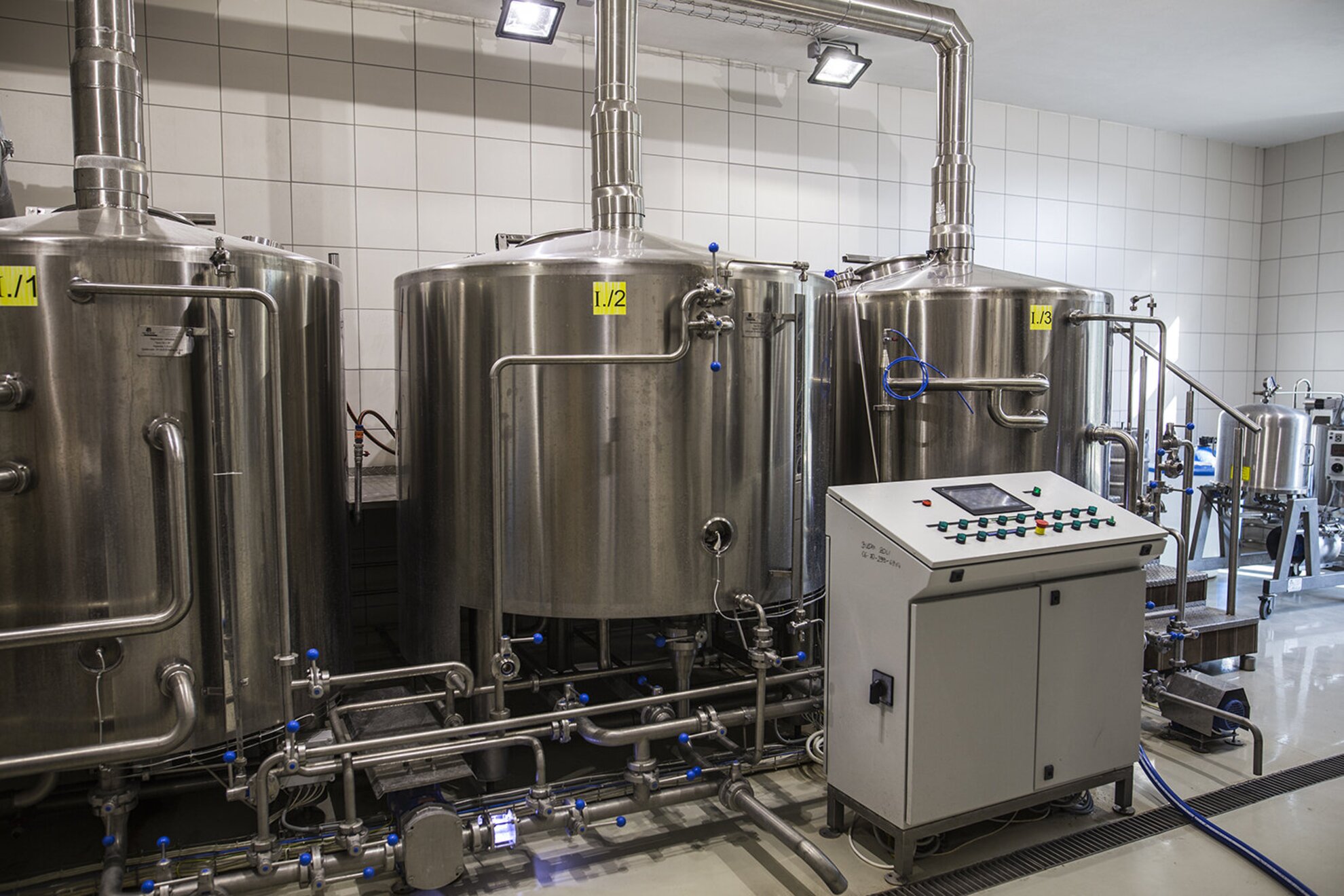
The next stage is bottling, which is quite the spectacle. The machine, which was built in the 1960s, but was refurbished to meet modern-day demands, pastes the labels on the bottles, rinses and fills them, and puts the caps on at the end. The device can make 800 bottles per hour. There’s a pasteurizing machine to ensure maximum hygiene, and another one for cleaning the barrels with water and sodium hydroxide. It’s of the utmost importance that the beers don’t come in contact with oxygen, which can spoil the stability of the finished product, so carbon dioxide is used instead.
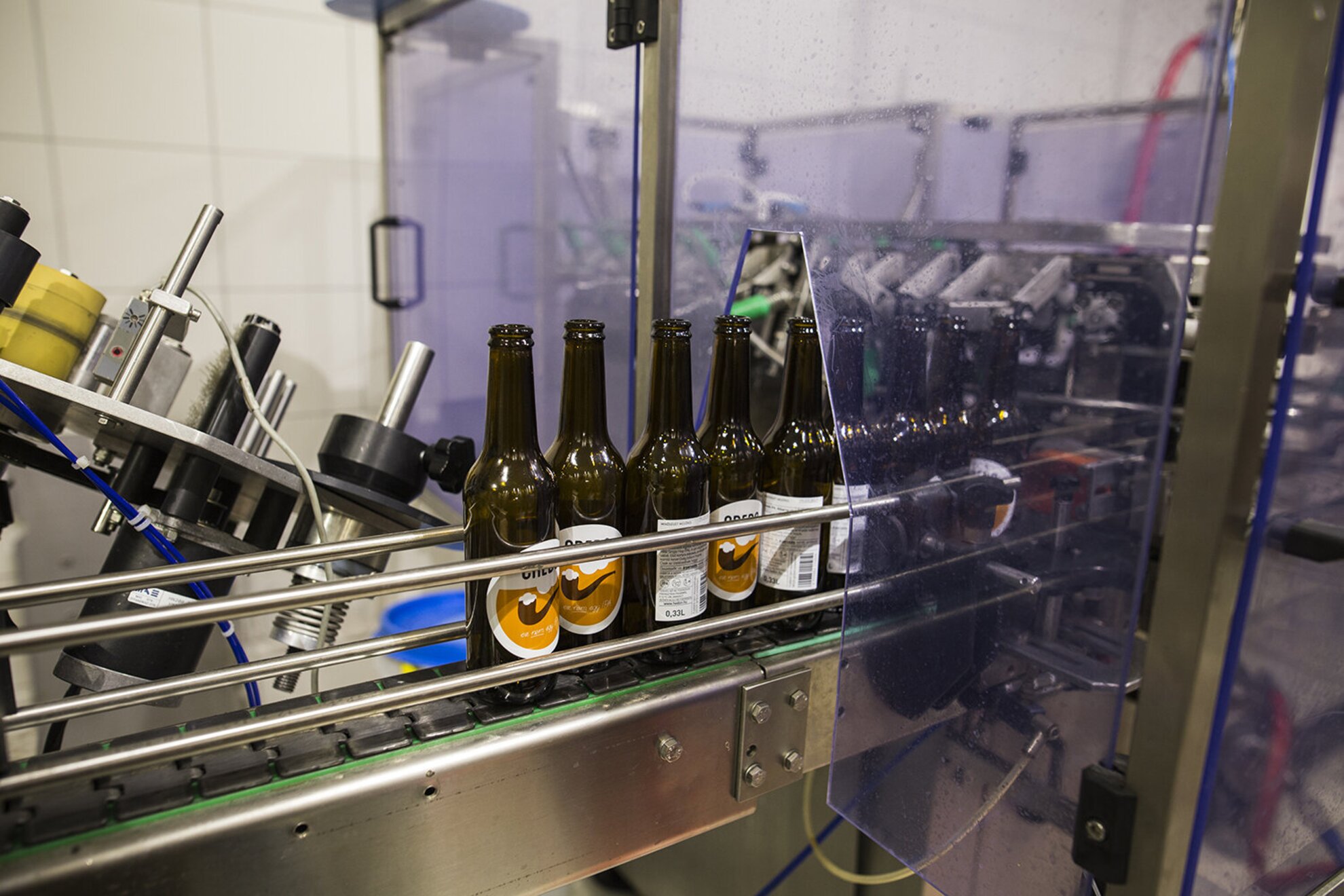
Beer and wine, all the time
The design came first, and then the factory in Balatonvilágos was built with the contribution of an investor; the aim is now to operate a predictable and profitable business. The network of resellers is constantly expanding: Hedon beers are currently available at 36 locations around Balaton (including Hello Tourist!, Sparhelt, Kishableány, Kistücsök, Kalóz, and Neked Főztem), and there’s no stopping until they reach 50. In Budapest, you can get the brewery’s products at 150 establishments. The team hopes a company will soon take on the task of distributing their beers nationwide, which would be a massive job for a smallish microbrewery.
